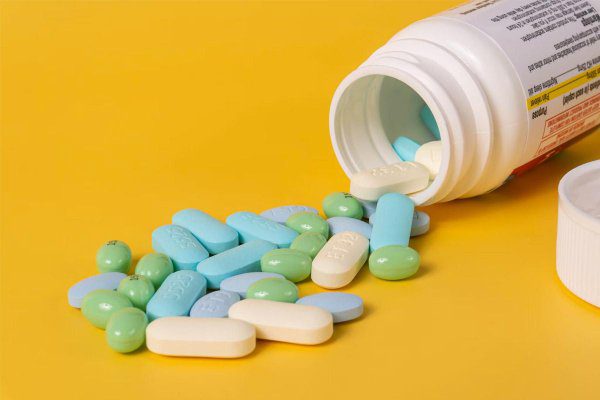It is difficult to explain in words how fundamental the pharmaceutical industry was and is. Responsible for the preparation of medicines, he created some of the medicines that saved the most lives, showing that the numbers, perhaps, better reflect the importance of the sector. However, some of his findings were mismanaged, generating harmful effects.
Overall, the most harmful impact of indiscriminate use of drugs concerns the addictive power of some of them. Morphine, for example, has been used as an anesthetic since the 19th century, but its opioid origin has made it a drug, with an impact similar to that of cocaine, curiously popularized to treat morphine dependence.
However, , some side effects are more complex in origin. Learn about the history of 5 important drugs to date, responsible for saving many lives, and also learn about the eventual problems they brought.
1. Birth control pill
(Source: Wikimedia Commons)
The pill was and is extremely important. Considered one of the catalysts of the sexual revolution, a phenomenon that spread around the world in the 1960s and 1970s, the pill emerged in the United States, developed by Gregory Pincus at the request of Margaret Sanger, a well-known advocate of birth control.
In his studies, Pincus noticed that progesterone was effective in stopping ovulation and used this knowledge to create an experimental pill. It took almost 10 years of research and clinical trials (full of controversy, by the way) until it was approved by the FDA in 1960.
However, the drug’s early years were fraught with side effects. serious, until an investigation resulted in a reduction in the hormone levels of the drug. It has generated major global demographic changes, but continues to be questioned by women’s rights activists.
2. Diazepam
(Source: Wikimedia Commons)
Created in 1954 by Dr. Leo Sternbach and marketed after eight years of research, diazepam, usually sold under the trade name of Valium, is a drug from the benzodiazepine group, used as a tranquilizer in the treatment of different health conditions.
Patients with anxiety, convulsions and insomnia, for example, have already benefited from the use of the drug. What no one was counting on is that he would be the trigger for chemical dependency cases. Between 1969 and 1982, it was the most commercialized drug in the United States, thanks to its low price and easy access, which was later made difficult.
3. Penicillin
(Source: Wikimedia Commons)
Penicillin has a well-known history. It was thanks to the work of the Scottish doctor Alexander Fleming that many lives were saved, in the story that depicts the greatest accidental discovery of something. This antibiotic was only produced and used on a large scale after the Second World War.
Unfortunately, its indiscriminate use (and others, besides penicillin) made a kind of natural selection, leading to the development of strains of bacteria resistant to different types of drugs.
4. Anesthetics
(Source: Wikimedia Commons)
Anesthetics were fundamental in the evolution of medicine, responsible for relieving pain in situations involving painful procedures, like surgeries. At the end of the 18th century, there was already research for the development of a drug of the kind, as was the case of the invention of nitrous oxide by the English chemist Joseph Priestley.
But the first anesthetic drug, chloroform , was only created in the 19th century, when the French chemist Jean-Baptiste Dumas developed a gas based on it capable of offering better recovery rates for surgeries.
Thanks to it, fewer patients died from pain shock. On the other hand, it brought risks that not even modern anesthetics were able to circumvent, especially the danger of suppressing the nervous system.
5. Nitroglycerin
(Source: Wikimedia Commons)
Few people know, but until it replaced gunpowder as the most powerful explosive, nitroglycerin was an important medicine , used to treat angina, a type of chest pain caused by reduced blood flow to the heart.
However, a scientific study has linked the use of nitroglycerin (and the drugs for which it led the way, such as blood pressure control) to rising death rates from cancer and other diseases. Such remedies were responsible for prolonging the lives of people, who began to suffer from other problems. Ironies of life, huh?








